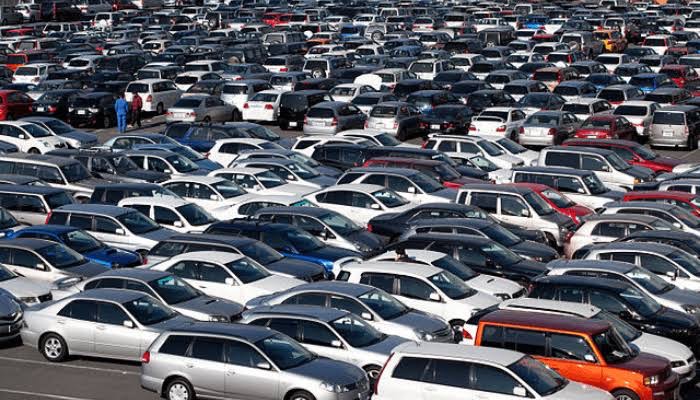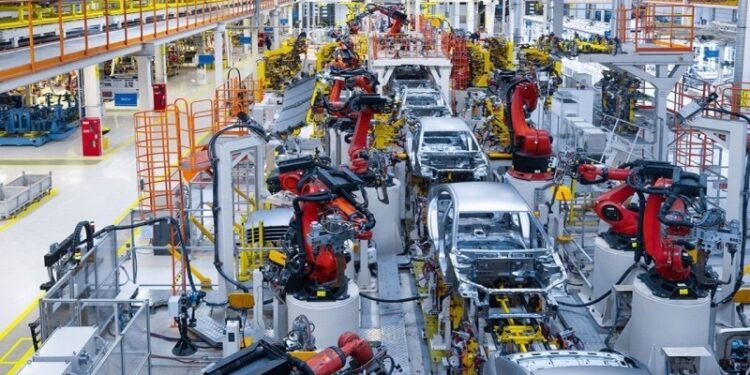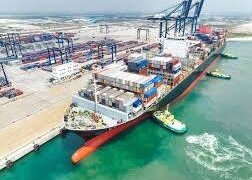Nigeria’s $210 million automotive industry lags behind other countries such as Morocco, South Africa, and Egypt. This is due to low demand for Nigerian-made vehicles and over-reliance on imported used cars.
Statistics show that Nigeria produced about 2,034 vehicles worth an estimated $210 million in 2023, accounting for about 0.04% of the country’s gross domestic product (GDP). Meanwhile, Morocco’s automotive industry produced 535,825 vehicles worth $31.4 billion in 2023, accounting for 24% of the country’s GDP.
South Africa, the continent’s second-largest automotive producer, produced 633,337 vehicles worth an estimated $20 billion, contributing 5.3% of the country’s GDP. Egypt produced 23,754 vehicles worth $1.5 billion, contributing 0.31 percent to Egypt’s GDP.
In Nigeria, Nissan Motors, Honda Motor, Innoson Vehicle Manufacturing Company, Hyundai Motor Company, Ford Motor Company, GIC Motor Companies Ltd, JAC Motors, KIA Motors, Dangote, Sinotrucks, Elizade, Lanre Shittu Motors, Milkano, North, PAN Nigeria Limited, Milkano International, VON Automobile Nigeria are well-known car manufacturers and assemblers.
In Morocco, over 250 automotive companies and supplier companies operate, including Stellantis, Opel, BYD, Fiat, and French car manufacturer Renault.
The Moroccan government is offering subsidies of up to 35% to manufacturers to build factories and expand ports, free trade zones, and rail infrastructure to enable the training of skilled workers. This puts the industry in a good position to attract investment.

South Africa is home to companies such as BMW, Mahindra, MAN, Stellantis, Nissan, Ford, Toyota, Volkswagen, Mercedes and Volvo Trucks. In 1995, the South African government launched the Motor Industry Development Programme (MIDP) to promote vehicle and parts manufacturing through exports. This was followed by the Automotive Production Development Programme (APDP) to increase local share.
Egypt is currently home to the Bayern Automotive Group, El Nasr Automotive Manufacturing Company, Al Mansour Automotive Company, Mercedes Egypt, GB Corporation, and Commercial Vehicle Manufacturing Company.
According to the National Automotive Design and Development Council (NADDC), Nigeria’s auto assembly plants have a total annual production capacity of 500,000 units, but despite a total investment of over 500 billion naira, production is only about 2% of installed capacity.
“We are not getting the needed patronage from the Nigerian market, which explains why our plant is assembling below capacity at the moment. We don’t have the customers that we expected in Nigeria,” said Takashi Nakajima, Managing Director of Honda Automobiles West Africa (HAWA), during a recent NADDC visit to the plant in Ota, Ogun State.
He said Nigerian automakers produce for sale, not for storage, so they need a market and demand. “We want the government to restrict the importation of used cars and look into auto financing. The interest rate is very high and can discourage customers from buying new cars. Therefore, we want government to come in here to support customers,” he said.
Moreover, HAWA’s Head of Sales, Marketing, and Logistics, Remi Adams, said Honda’s factory has an installed capacity of 10,000 units per year but currently produces only about 2,000 units per year.
He blamed Nigerians for importing used and salvaged cars, damaging the operations of local assembly plants.
According to the National Bureau of Statistics, passenger vehicle imports into Nigeria increased by 224.67% over 2022 to 1.47 trillion naira.
NADDC Executive Director Joseph Osanipin said the contribution of Nigeria’s automotive industry to GDP and job creation remains very low compared to Morocco and South Africa.
“We need to support locally-made vehicles. By choosing made-in-Nigeria cars, you are investing in the future of our nation. Let us consume what we produce and produce what we consume,” he said.

Benneth Ejindu, a director of the Nigerian Association of Automotive Manufacturers (NAMA), said Nigeria’s automotive industry has been underperforming despite its huge potential and abundant raw material resources. He said Nigeria can build the industry based on domestic demand and exports as an added advantage. Ejindu said Nigeria needs to sign the NAIDP 2024 bill.
He further said the country should develop and implement a master plan for the production of raw materials and parts for the automotive industry and promote CKD assembly with contract manufacturing to expand automotive production.
He noted that Nigeria can produce welding parts such as exhaust systems, seat frames, electrical parts such as batteries, indicators, wiring harnesses, tyres, hoses, fan blades, seat foams, oil seals, hoses and other plastic and rubber parts such as grilles, etc.
He said parts such as radiators, cables, filters, brake pads/linings, windscreens, side windows, fibreglass parts, and paints should not be imported but produced locally.
Meanwhile, a former government adviser on automotive policy, Luqman Mamudu, said the importation of used cars was undermining local car production. To turn the situation around, he said Nigeria needs to pass the NAIDP Act 2024 by 2034 to gain investor confidence.
He recommended that all imported used cars, including wrecked cars, be accompanied by a certificate of integrity from the country of origin.
Mamudu called on the government to establish a 100 billion naira intervention fund to be used as loans for the purchase of vehicles manufactured exclusively in Nigeria.
He said loans should only be given to commercial vehicle fleet operators to bring large numbers of ride-sharing services, buses, and trucks into Nigeria to contain rising transport costs and curb inflation.


































